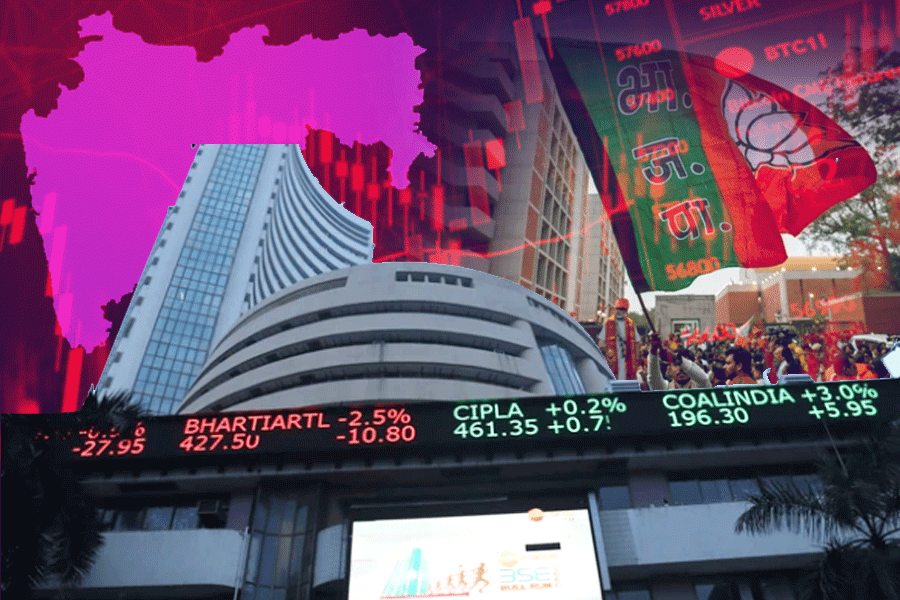 Friday, 22 November 2024
Friday, 22 November 2024
 Friday, 22 November 2024
Friday, 22 November 2024
The massive crisis engulfing the Adani Group has become devastatingly clear with the market value of its companies crashing nearly $30 billion on Thursday alone after news broke that US prosecutors had charged the conglomerate’s chairman Gautam Adani and associates with bribery.
A US arrest warrant has been issued for Gautam Adani, whose net worth tumbled by $12 billion on Thursday to $57 billion. Arrest warrants were also issued for his nephew Sagar Adani, along with a former Adani Green executive, Vneet Jaain.
The Kenyan government swiftly cancelled plans to award the Adani Group companies deals to build power plants and manage the country’s main airport following the US indictment. The group could have lost up to $18 billion in bond values on Thursday alone.
The Adani Group has denied all charges, saying it is a “fully law-abiding organisation, fully compliant with all laws.”
The group described the accusations as “baseless and denied.”
The latest crisis, analysts believe, could have far greater fallout than the explosive Hindenburg Research report of early 2023, which accused the group of “brazen stock manipulation” and “accounting fraud,” wiping more than $100 billion off the conglomerate’s combined market value at one point.
The Adani Group had dismissed those allegations as “nothing but a lie.”
Shares of the Adani Group companies had largely recovered their losses since the Hindenburg report. But the latest US allegations could upset the group’s global expansion ambitions, hinder its capital-raising efforts, and tarnish the fundraising abilities of other Indian firms by association, analysts warn.
“The indictment of Adani Group’s chairman and other senior officials on bribery charges is credit negative for the group’s companies,” Moody’s Ratings stated.
The US Attorney's Office has an extremely high prosecution success rate, primarily because most federal cases do not go to trial. In fiscal year 2022, 89.5 per cent of federal defendants pleaded guilty, and 8.2 per cent of cases were dismissed. Among cases that went to trial, 1.9 per cent resulted in guilty verdicts, while only about 0.4 percent ended in acquittals. This translates to an overall success rate of over 90 per cent for prosecutions managed by US Attorneys.
In Australia, shares of GQG Partners, which has invested a massive $10 billion in Adani Group companies, plunged 21 per cent. The company said it was “reviewing” its holdings in the conglomerate.
Group flagship company Adani Enterprises suffered the most significant hit Thursday, losing Rs 61,000 crore or 20 per cent of its value shortly after the market opened. The group’s combined losses amounted to a staggering Rs 2.60 lakh crore. Shares of other group companies saw 18-20 per cent declines in value. Adani bonds also took a severe beating, and the group cancelled a $600-million bond offering.
The charges from the US Justice Department and a civil securities fraud suit by the Securities and Exchange Commission (SEC) stem from a vast alleged bribery scheme involving more than $250 million paid to government officials for solar contracts. Prosecutors allege the scheme aimed to secure state government contracts projected to generate over $2 billion in after-tax profits over 20 years.
“This indictment alleges schemes to pay over $250 million in bribes to Indian government officials, to lie to investors and banks to raise billions of dollars, and to obstruct justice,” Deputy Assistant Attorney General Lisa Miller said in a statement.
“These offenses were allegedly committed by senior executives and directors to obtain and finance massive state energy supply contracts through corruption and fraud at the expense of US investors,” Miller added.
The Justice Department and the SEC intervened because the Adani Group raised money in the US without disclosing the US bribery probe. Prosecutors argue this omission misled investors who might have avoided such risks had they been aware.
“False statements (by the group) concealed both the United States government’s investigation and the bribery scheme from investors and financial institutions,” prosecutors alleged in the indictment, “all to ensure the conglomerate’s and the Indian energy company’s continued access to capital in the United States and elsewhere.”
Azure Power, another renewable energy company, was handling part of the massive 12GW solar energy deal. The Adani Group and Azure Power planned to supply power to the state-owned Solar Energy Corporation of India (SECI), which acts as a middleman for power purchases. SECI, in turn, would sell power to state governments. However, none of the state governments initially was willing to buy because they felt the rates being charged were too high.
Prosecutors allege that Gautam Adani and others “personally met” government officials to
“advance” the bribery scheme. The indictment alleges $228 million was paid to an unidentified official of the Andhra Pradesh state government, after which the state agreed to buy 7GW of power.
Electricity distribution companies in Odisha, Jammu and Kashmir, Tamil Nadu, and Chhattisgarh also struck deals with SECI, the indictment says.
The US Attorney’s Office also cited “in-person” meetings and discussions among defendants about the alleged bribery scheme, as well as bribes documented on messaging apps and Excel spreadsheets.
For example, Sagar Adani allegedly used his phone to track bribe details, while Vneet Jaain photographed a document summarising bribe amounts, and Rupesh Agarwal of Azure Power prepared analyses on concealing payments, according to the indictment.
The defendants “extensively documented their corrupt efforts,” the US Attorney alleged.







